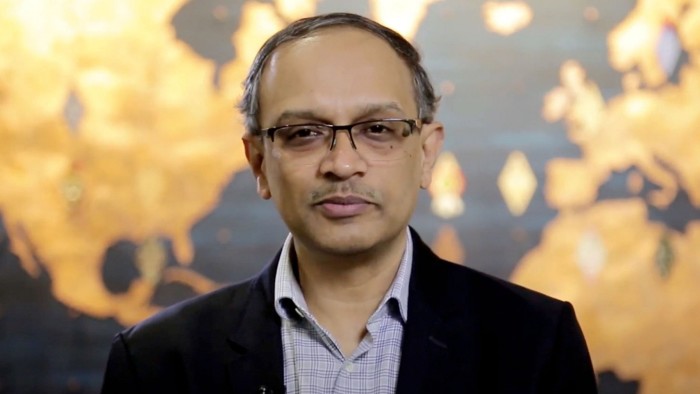Unlock the Editor’s Digest for free
Roula Khalaf, Editor of the FT, selects her favourite stories in this weekly newsletter.
Jaguar Land Rover has appointed the finance boss of Tata Motors as its new chief executive, in a move that increases the Indian owner’s influence over the UK luxury-car maker.
JLR said on Monday that PB Balaji, who has been on its board since 2017 as a non-executive director, would take the helm of the carmaker following the retirement of Adrian Mardell after three years as chief executive.
The change in leadership comes as JLR is engaged in a costly shift to an all-electric vehicle strategy and a controversial rebranding of the Jaguar marque, amid new financial pressures unleashed by US President Donald Trump’s tariffs.
A widely derided 30-second advertisement by Jaguar last November, which was meant to relaunch the brand but involved no cars, was labelled a “TOTAL DISASTER” by Trump on Monday.
Trump lauded actor Sydney Sweeney’s “HOTTEST ad out there” for American Eagle jeans, as he criticised Jaguar’s “seriously WOKE advertisement”.
He then took aim at the UK carmaker, saying on his Truth Social platform: “The CEO just resigned in disgrace, and the company is in absolute turmoil. Who wants to buy a Jaguar after looking at that disgraceful ad.”
Natarajan Chandrasekaran, chair of the Tata Group and JLR, said the business had carried out a search for a new chief executive over the past few months. JLR announced Mardell’s retirement last week.
Chandrasekaran added that Balaji, 54, “has been associated with [JLR] for the past many years and is familiar with the company, its strategy and has been working with the JLR leadership team”.
It is the first time an executive from Tata Motors has been appointed to lead JLR since the Indian conglomerate’s acquisition of the UK carmaker in 2008.
Balaji was poached by Chandrasekaran from Hindustan Unilever, part of the UK consumer goods group, to become Tata Motors’ chief financial officer in 2017. Balaji sits on the boards of Tata Group’s principal subsidiaries, including Air India.
Mardell, 64, became interim JLR boss in late 2022 after his predecessor Thierry Bolloré resigned two years into the role following a string of financial losses.
Mardell was appointed chief executive on a permanent basis the following year after the company struggled to find internal and external candidates to take on the top job, according to people with knowledge of the process.
People close to JLR said Mardell took on the chief executive role with a three-year term in mind and that he wanted to retire.
But his departure comes amid challenges for JLR as it shifts all its vehicles to battery power at a time when the consumer transition to electric vehicles is proving slower than expected and is squeezing profits across the industry.
Rival brands including Aston Martin and Porsche are increasing their ranges of hybrid and petrol vehicles to address the bumpy transition to EVs.
Jaguar will relaunch as an all-electric ultra premium brand from 2026, and shift all its vehicles to battery power by 2030.
But people briefed on the matter said the company is facing delays with launching its electric models.
“Our plans and vehicle architectures are flexible so we can adapt to different market and client demands,” the company said last week.
JLR, which also produces the Range Rover and Land Rover Defender vehicles, reported a 15 per cent drop in sales during the April to June quarter due to the retirement of old Jaguar models and pauses in US shipments caused by US President Donald Trump’s tariffs.
Balaji’s appointment is the latest in a series of leadership changes in the car industry. Renault, Stellantis, Nissan, Volvo Cars and McLaren have all announced new chief executives this year.


